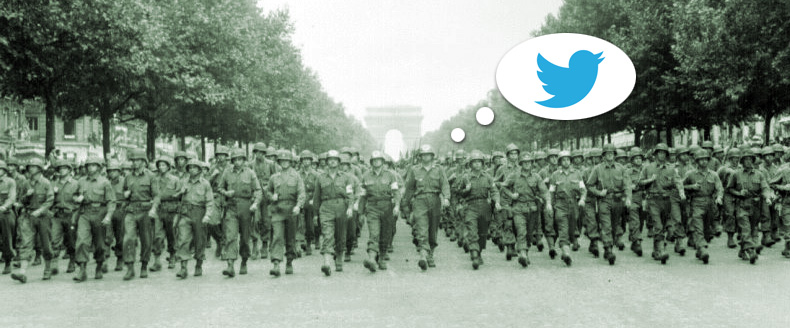A year ago, we covered the debut of the Clinton campaign’s Twitter posse. Now that we’re in debate season, we get to watch her rally the troops.
Pre-debate, her team sends out preparatory messages, like this one that arrived today (subject line: “#Debates2016: Your third and final pre-debate prep guide!”). During and after, they send emails that hit particular issues and aim to frame the public discussion. Each one so far has included links to specific tweets to retweet; today’s also included a photo for followers to tweet at the campaign and at three friends who are going to be watching.
Good Practices
Obviously, Epolitics.com thinks that organizing people to speak on your behalf on social media is smart digital politics: it takes advantage of the peer-to-peer nature of Facebook and Twitter to turn supporters into ambassadors within their own social spheres. Also good: spreading the love. While many of the Clinton messages ask us to amplify tweets from the campaign itself, others point to third-party posts from allies and individual supporters. That’s a great practice, since it helps to boost that bandwagon effect. Plus, it builds up the allies and introduces THEM to new followers, creating social capital that will last beyond the moment.
On the technical front, the campaign reaches the “Grassroots Tweeters” list via a Google Group. Again, good: why build new technology when Google gives it away?
Could Be Better
My only complaints? One, the campaign could have activated the social-media ambassadors earlier; the majority of the messages I’ve received via this list have come in the last few weeks. I did receive some during the primary season, but the list was largely quiet over the summer, when supporters could have been helping the campaign define Donald Trump via his favorite medium. Two, the messages are often two or three megabytes in size, even though they’re light on images, and my inbox is near capacity already. Compress those files, kids!
In case you’re wondering, Trump doesn’t seem to have an organized equivalent: the closest I could find was this message asking us to follow him on Facebook and to use the campaign iPhone/Android app…a bit higher a bar to clear than simply joining an email list. Though, his supporters (robot and otherwise) are fired up enough on Twitter that he may not need as much help.
One question: what happens once the campaign ends? Presuming that Clinton is the nominee, will she ask her ambassadors and other supporters to back her up as she fights for her policy agenda? Obama’s list never lived up to its potential on that front, and I’d hate to see yet another Democratic campaign squander a resource that took many months — and many dollars — to create.
For more on social-media ambassador programs and other ways to rally supporters, see the ebook “How to Use the Internet to Win in 2016.”

